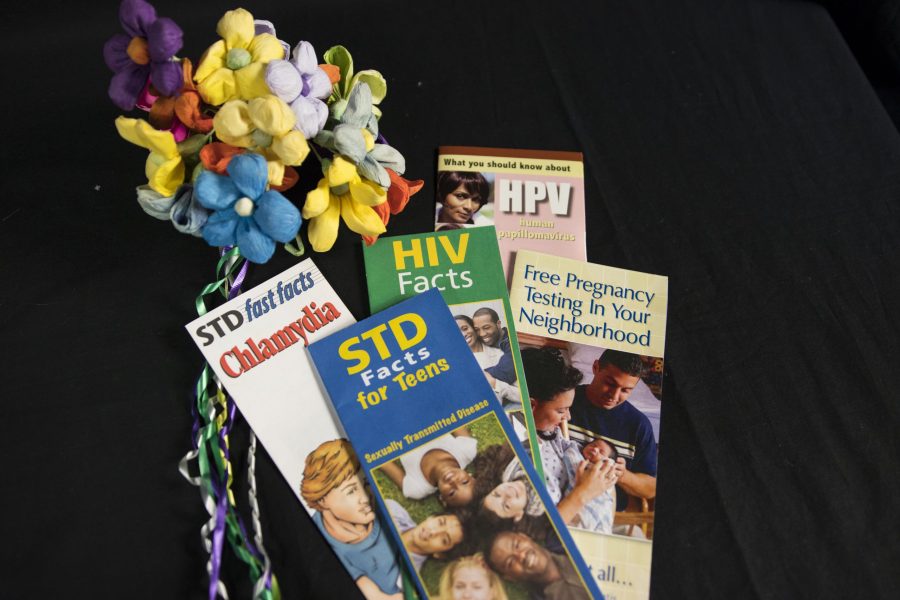Generally, during their teen and college years, people are having the most sex with new partners. Although this is the time when people should be the most concerned with practicing safe sex to avoid STDs and pregnancy, sex education has been lacking.
Texas sex education is focused on abstinence, which is controversial, as teenagers are often experimenting and figuring out their sexuality at that age.
With these poor sex education curriculums, students are only briefly informed on human anatomy, STDs and pregnancy.
Due to this, these students often enter college without the proper knowledge on sex.
According to the Rivard Report, as of 2016 in Bexar county the teen birth rate was two to four times the national rate in 15 zip codes. San Antonio teen pregnancy is higher than average, but has been on the decline for the past eight years.
Teen pregnancy has been prevalent for years, but today, awareness has increased due to political movements highlighting women’s rights.
Teen pregnancy is prominent in lower income areas, as access to birth control is more limited, because of the lack of funds as medicaid programs do not cover contraceptives.
Organizations such as Planned Parenthood and others promote affordable birth control and health services, as well as host marches to support women and their fight for access to these products and services.
While prescription birth control can prevent pregnancy, improve menstrual cycles, improve acne and balance hormones, it can not prevent STDs. Teens with poor sex education can often forget that STDs are more highly concentrated within the young adult age group.
Medical Director of Metro Health Dr. Junda Woo said that “for women there are biological reasons that the cervix is more magnetic for infections.”
As an OBGYN she said that young women are physically more vulnerable to infection as “the cells on the cervix change as we grow older, and they are more exposed in the areas where chlamydia and gonorrhea go to when women are younger.”
According to Metro Health research, from 2014 to 2015 San Antonio STD rates passed state averages as HIV increased eight percent, chlamydia by 15 percent and gonorrhea by 22 percent.
The 1980s AIDS epidemic led to people of that generation being very aware and educated on the causes and prevention of STDs.
People in San Antonio living with AIDS today are mostly in the 45 and over age bracket according to 2016 Metro Health data.
AIDS develops when someone is infected with HIV and is not controlling it with prescription drugs.
The Fast Track City Initiative is a process of linking organizations together in an effort to end AIDS for their 2030 goal. Although the HIV virus will remain present, there are treatments to keep the infection controlled in the people who have it.
“The technology is within reach, but it’s getting past the stigma, the human and relational aspects of why HIV turns into AIDS. Right now in San Antonio there is a vast amount of ignorance and discrimination against people who have HIV,” Woo said.
There is a misconception that people with HIV can transmit disease through hugging, kissing, eating off the same plate and other household contact.
In 2017, the Kaiser Family Foundation conducted a national survey of young adults on HIV and AIDS that found a third of respondents incorrectly believe that HIV/AIDS can be spread through plates, glasses and toilets and more than half of respondents said they would be uncomfortable living with someone with HIV or AIDS.
Thirteen percent of these respondents were unaware of PrEP, the safe and effective daily pill that can be taken every day to prevent HIV.
This miseducation leads to discrimination and fear being instilled in the lives of people diagnosed with HIV, leaving them more reluctant to reach out for help.
Public health deals with social determinants of health as “there is so much that goes into health other than the time you spend at the doctor’s office,” Woo said.
“The questions needing to be asked are ‘do I feel empowered enough to talk about condoms with my partner?’ and in unfortunate cases ‘am I having to have sex because I need housing?’ or ‘am I having to have sex because I am in a relationship that is unhealthy?’” Woo said.
The initiative for safe sex and STD prevention starts with becoming aware and educated on why it is necessary, as well as communicating with your doctors, peers and partners to spread knowledge.
The UTSA Student Health Center provides STD testing and free condoms for students, and testing is also available in numerous clinics around the city.
If you are actively having sex with new partners, make sure to go about it safely, and don’t be afraid to ask when the last time your partner has been tested.







